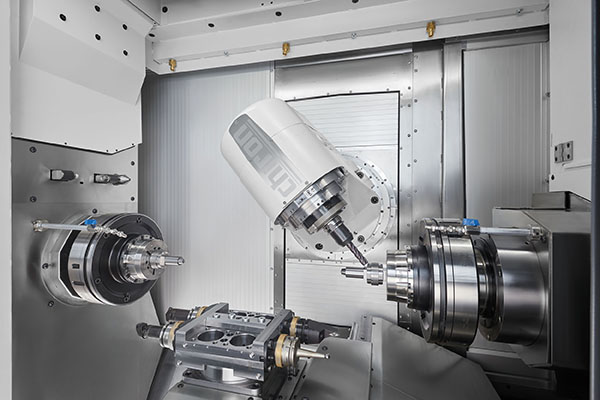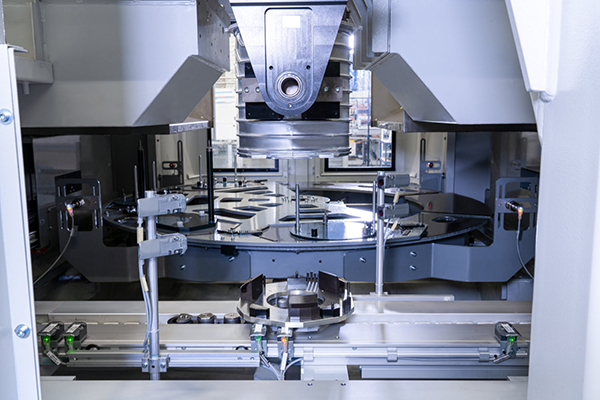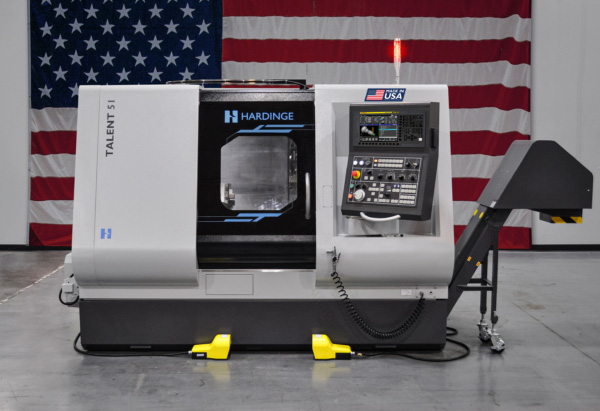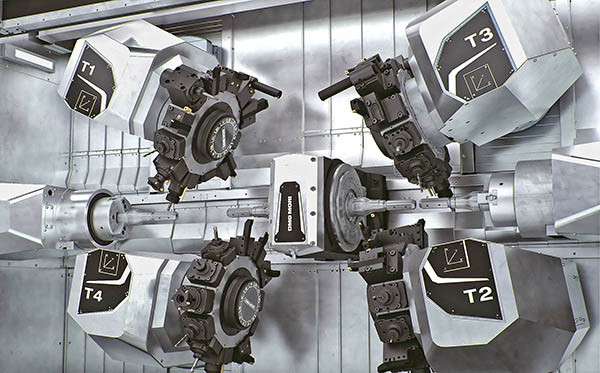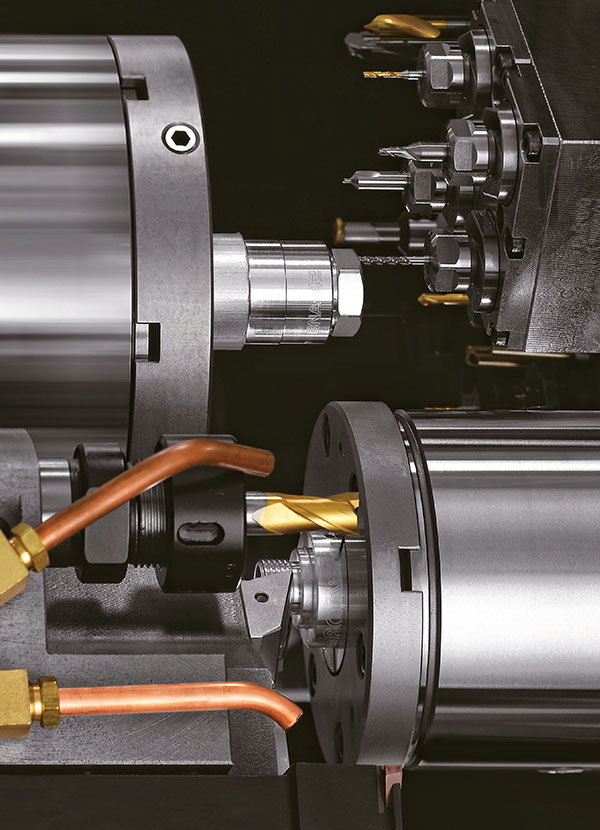
Now available in the UK from the Engineering Technology Group (ETG), the new 715 series turn-mill centre from the Chiron Group demonstrates its autonomous capabilities by machining components on all six sides.
Developed upon the Chiron FZ08 S turn-mill precision+ and Stama MT 733 bar machining centres (also available from ETG), the new arrival fits perfectly into the Chiron Group portfolio. With its combination of speed and precision, the 715 series is suitable for demanding machining tasks in the medical technology, aerospace, energy and automotive industries.
Two versions of the machine are available, which ETG can tailor and configure in a variety of ways. The two types of machine, the Chiron MT715 (Mill Turn) and Chiron MP715 (Multi Profile), encompass four expansion levels for turning and milling operations in any order. Notably, the swivel head, rotary spindle and opposing spindle enable continuous multifunctional machining on all six sides. Both ensure high reliability and quality, especially for components such as hip stems, turbine blades or extrusions for chassis or battery storage.
Both machines have space for 128 tools and boast integrated component handling with workpiece storage. As a result, the machines fulfil all the demands for the automated manufacturing of workpieces in small and medium batch sizes with unmanned processing. The new machine platform is also set up to integrate digital systems from the Chiron SmartLine portfolio.
For further information
www.engtechgroup.com






